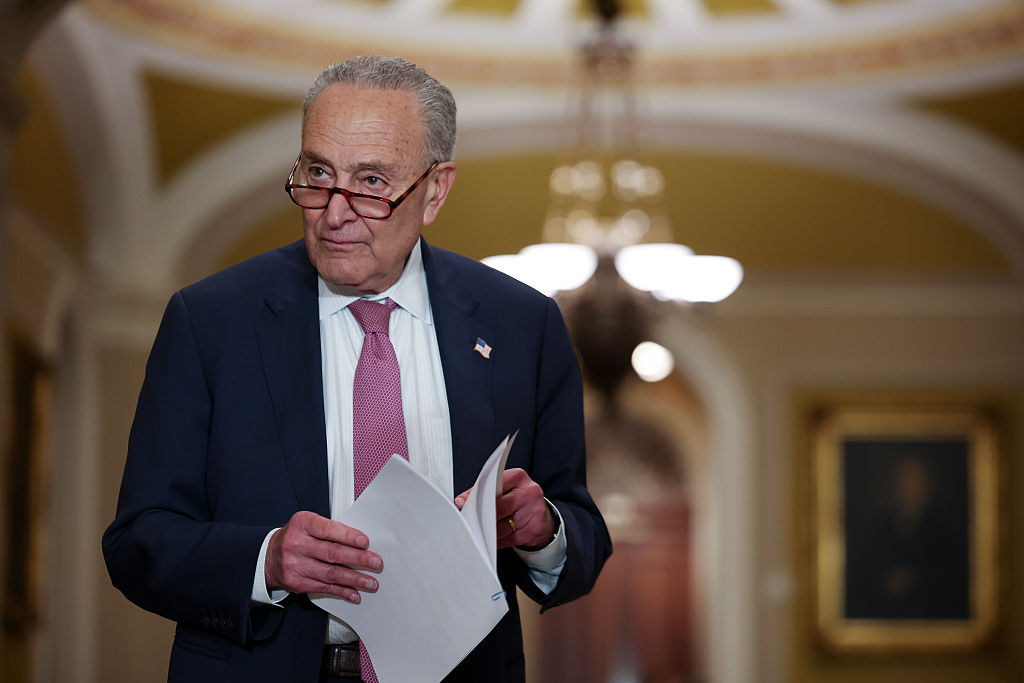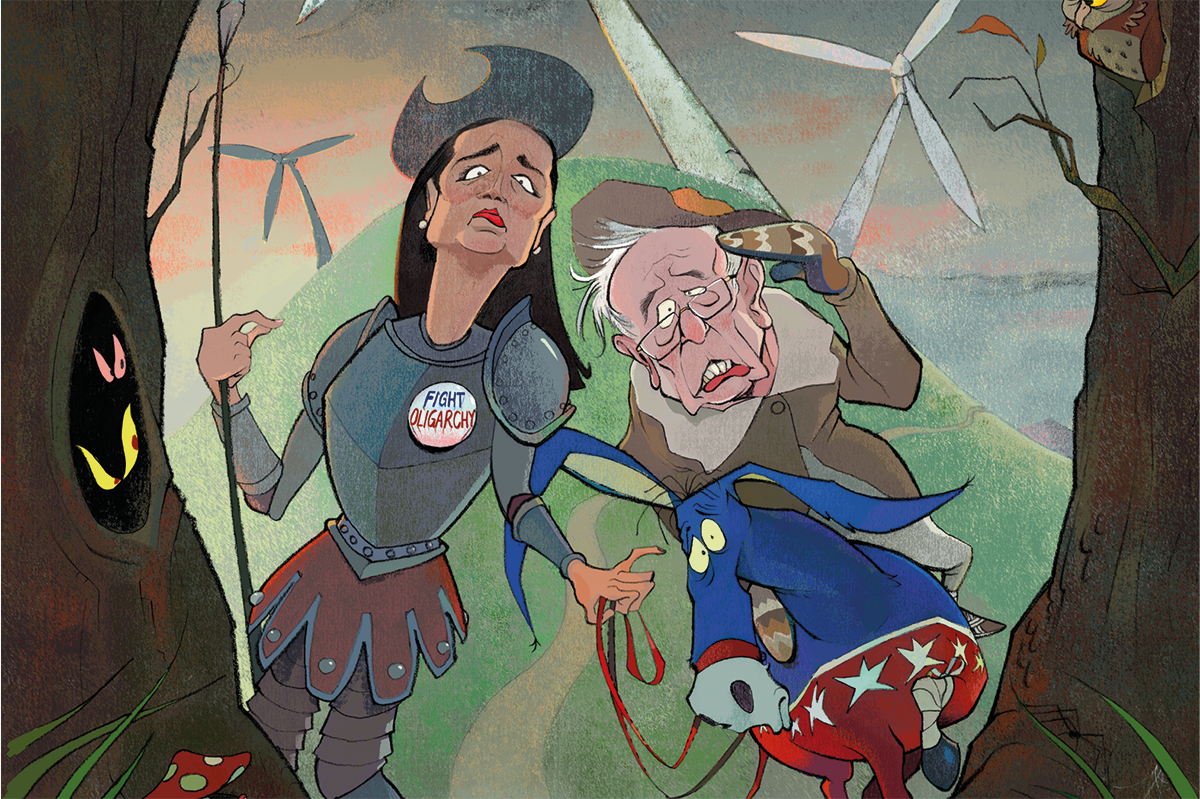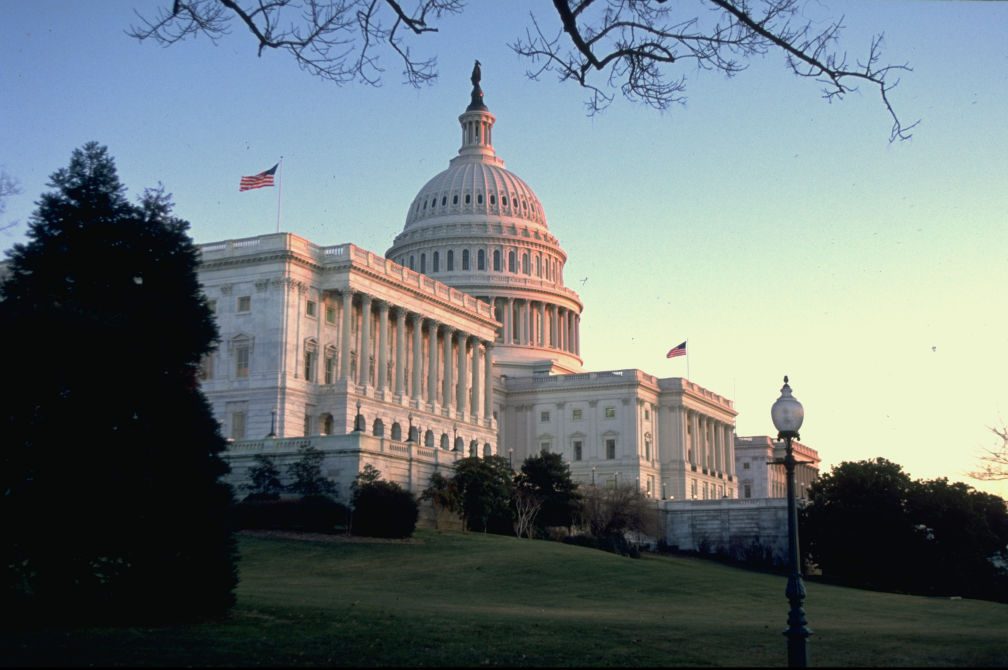Cassandra was a Trojan princess with the gift of prophecy — or the curse. For while she could foresee the downfall of her city, she could not make anyone believe her. She wound up enslaved to the conquering Greek Agamemnon, but he too disregarded her warnings and met his own grisly fate when he returned home to find his queen and her lover prepared to kill him.
America’s Cassandra was a Frenchman. His fate has been less cruel but more ironic. Alexis de Tocqueville and his family survived the French Revolution, for aristocrats like them an event nearly as calamitous as the sack of Troy. Like Cassandra, Tocqueville could see into the future, in his case through acute reason rather than supernatural gift.
But Tocqueville’s warnings to posterity have not only been dismissed like Cassandra’s, they’ve been interpreted backward. Americans are taught that Democracy in America is a tale of triumph, a celebration of their country’s “exceptionalism” and freedom from the class conflicts of old Europe.
Tocqueville did indeed find in early nineteenth-century America an egalitarian society that nonetheless had social cohesion, thanks to religion and the self-organizing of local communities. But what would happen if something took the initiative away from communities that provided for themselves? What if the religious impulse, instead of looking to an all-provident God, turned to an earthly “tutelary power” — centralized government — instead?
As shabby as our political parties are, the Republicans and Democrats present contrasting images of the America that Tocqueville admired and the one he feared would come. Reduced to its most basic components, today’s Republican social coalition consists of wealthy local businesses, conservative churches and, in growing numbers, less educated workers. These groups have their differences, which account for many of the GOP’s ideological fault lines. But they are also able to supply one another’s needs.
The businessmen prioritize low taxes and less regulation. Religious voters are especially concerned about abortion and sexuality. The working class wants job security and rebels against class hatred whitewashed as political correctness.
When highly educated wonks in DC or Manhattan get involved, they often — in their well-credentialed ignorance — pit one of these groups against the others. The least educated are the most despised by the highly educated: working-class men appear to be necessary for Republican fortunes, but they are deemed deplorably unchurched and unworthy of any but the lowest place in the global economy. No doubt economic Darwinism, theocracy and working-class nationalism are incompatible ideologies. But social groups of the GOP are in fact complementary, not in the realm of ideas but in practice. Traditionally, localized businesses need disciplined workers. Working-class men need jobs and wives. Churches encourage marriage and a sense of the mutual obligations of moral community between workers and capitalists. Religion mitigates bottom-line capitalism and unites the sexes, while receiving in return more souls for the pews.
That’s an oversimplification, of course, but the complementarity that such a sketch illustrates is real, and it’s the very foundation of our country. Democracy in America is an earlier chapter of the story, told in masterful detail. But Tocqueville also revealed what was in the chapters to come.
Today the Democratic Party’s social coalition is striking in its lack of complementarity. There is even a paradox of success, where some Democratic groups that are most prosperous economically are more socially vexed as a result. Women are generally hypergamous; as highly educated, career-oriented, nonreligious women prosper, however, the available pool of even wealthier, higher-status men shrinks. And because men generally value looks over social status or wealth, a middle-aged career woman may find, even if she did marry up, that her higher-status husband is ready for a new wife.
Black Democrats need safer neighborhoods and more economic opportunities. The overwhelmingly Democratic partisans inside the tech sector are supporters of affirmative action, to be sure, but are not exactly likely to hire non-coders from the inner cities. Highly educated liberals believe as a matter of enlightened dogma that crime-ridden neighborhoods are victims of Republican racism and inanimate firearms, not insufficient policing and poor parental discipline. There are churches and other religious institutions among the Democratic coalition, but many of them are as nontraditional in their social views as their secular counterparts. Those with a traditional outlook on sex and personal responsibility have to compete with the contrary teachings of their rival groups.
What keeps the Democrats together is what Tocqueville warned about — precisely their lack of local complementarity, which leads them to depend on “an immense and tutelary power, which takes upon itself alone to secure their gratifications and to watch over their fate.” This immense and tutelary power is not simply the welfare state but a state that provides new social esteem (same-sex marriage, for example, and other novel rights) and that employs its power over education to transfer responsibility for personal unhappiness from those who are unhappy to those who are “unfair.” It’s the Republicans’ fault that you’re alone and confused.
The emotional glue of the Democratic coalition is resentment of the Republican coalition, and the institutional means to make whole the broken lies in the centralized state, aided and abetted by near-monopoly tech firms and legacy media. Tocqueville told us, in broad terms, that this is how democracy in America gives way to despotism. But his warning can only help us if we dare to hear it.
This article was originally published in The Spectator’s February 2023 World edition.

























